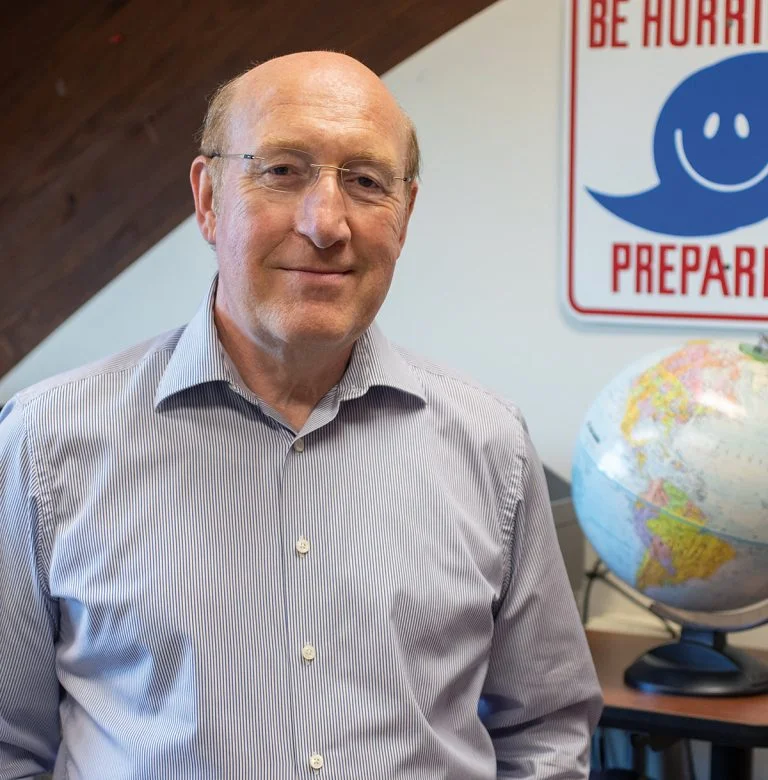Professors in a University of Rhode Island research program have been predicting hurricane patterns to improve public safety and mitigate storm damage amidst recent weather crises.
The program, Rhode Island Coastal Hazards, Analysis, Modeling and Prediction, increases awareness for communities through real-time hazard and impact prediction.
RI-CHAMP has over the past 10 years been able to accurately predict the path of storms around the state through high-performance computers, according to Graduate School of Oceanography professor Isaac Ginis.
The model is used for emergency management and long-term planning around resilience to natural hazards, according to Austin Becker, a professor and chair of the Department of Marine Affairs.
This computer model is designed to help emergency managers acquire information regarding coastal flooding and storm surge so they can study hazard and risk assessment and help mitigate impacts as fast as possible, Ginis said. The model also includes a risk analysis related to sea level rise that allows local communities to plan for the future.
The RI-CHAMP storm model is composed of equations that describe the physics of the atmosphere, Ginis said. These complex equations utilize high performance computers, which study factors that make up the forecast, such as temperature and wind.
The National Weather Service puts out a forecast for the next storm every six hours, according to Pam Rubinoff, a coastal resilience and extension specialist from the Coastal Resources Center and Rhode Island Sea Grant. RI-CHAMP can translate the forecast into a model which then reflects predicted danger of critical assets in near-real time.
The model is run multiple times throughout a storm to make more accurate predictions, according to Eliza Berry from the CRC and Rhode Island Sea Grant.
“Inevitably, a forecast is likely to have improved accuracy as it gets closer, so when a forecast comes out as the storm gets closer and closer, the team can rerun the model and reduce the uncertainty,” Berry said.
RI-CHAMP is now in its final year of a 10 year contract with the United States Department for Homeland Security, according to Ginis. The program will soon be transitioning to operations at the Rhode Island Emergency Management Agency.
RI-CHAMP is also transitioning to become more focused on broadening its efforts as well, Rubinoff said. As of early in summer 2024, the program has worked to integrate outside groups such as the U.S. Coast Guard Sector Southeastern New England and the New London/Groton areas of Connecticut.
RI-CHAMP has been used in naval stations in Newport as a planning tool and acted as an emergency management tool, according to Rubinoff.
About eight marine affairs graduate students and a few oceanography students have utilized RI-CHAMP for research, according to Becker. Becker has worked with marine affairs students to create an informational database that looks at the impact of flooding and wind on critical facilities, such as hospitals, across Rhode Island.
“All that information gets combined into a forecasting system that can be accessed by emergency managers so they can get an understanding of what they need to be worried about as the storm is making its approach,” Becker said.
A few students are working on the project, including Sarah Bednarski, a Coastal and Environmental fellow who is doing her project based on RI-CHAMP.
Sam Adams, a doctoral student in marine affairs and the director of URI Public Safety’s Emergency Management, has also been heavily involved in the project, according to Becker.
“He’s been really instrumental at bringing his expertise as an emergency manager in his network to help improve and adapt the RI-CHAMP tool for use in emergency management,” Rubinoff said.
Ginis has worked with students as well, and in the past developed a coupled hurricane-ocean prediction model in order to predict how a hurricane moves whilst simultaneously predicting how the ocean temperature is changing underneath. The model was previously adopted by the National Hurricane Center.
Since its beginning, RI-CHAMP has held a focus toward interdisciplinary applied research with relationships that have been built into the project, Rubinoff said. In research applied to real life problems, which help managers and planners address critical issues, it is necessary that there is connection between everyone involved.
“We are all an integral part of that team and we each have our different roles,” Rubinoff said. “The engineers can’t just work by themselves and the communications people can’t work by themselves. You need to really be an integrated team, and the project needs to be designed in that way.”
For more information about the research programs plans and initiatives, visit RI-CHAMP’s website .

